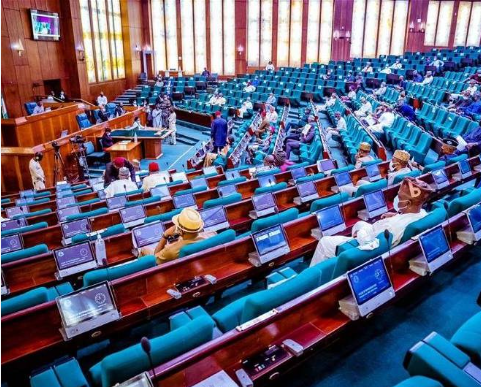A Deep Dive into the Investigation of Import Surcharge Irregularities in Nigeria
The Nigerian House of Representatives has initiated an investigation into alleged irregularities surrounding the remittance of a two percent import surcharge to the Raw Materials Research and Development Council (RMRDC). This surcharge, levied on imported goods, is intended to fund the RMRDC’s operations and its mandate of promoting research and development of local raw materials. The House’s decision to probe these irregularities stems from concerns raised by Kaduna lawmaker, Mustapha Aliyu, who highlighted the discrepancies between the legally mandated two percent surcharge and the significantly smaller amount reportedly received by the RMRDC. This investigation aims to unravel the complexities surrounding the collection, remittance, and budgeting of this crucial funding source and ensure its proper utilization for national development.
The RMRDC, established in 1987 and operating under the Science and Technology Act, 2004 (later repealed and reenacted in 2022), plays a pivotal role in Nigeria’s pursuit of industrial self-sufficiency. Its core mission is to reduce dependence on imported raw materials by fostering research, development, and utilization of locally available resources. The 2022 amendment to the RMRDC Act increased the import surcharge from one to two percent, reflecting the growing importance of the Council’s work and the need for adequate funding. The increased surcharge is intended to empower the RMRDC to effectively carry out its mandate and contribute to economic diversification.
The controversy centers around the alleged discrepancy between the stipulated two percent surcharge and the actual remittances received by the RMRDC. According to Representative Aliyu, the Council receives a negligible amount, approximately 0.05%, a far cry from the mandated two percent. The source of this meager funding remains unclear, raising concerns about transparency and accountability. This lack of clarity in the remittance process is a direct contravention of Section 12(1)(b) of the RMRDC Act, 2022, and undermines the legislative intent behind the surcharge.
The House of Representatives, presided over by Speaker Tajudeen Abbas, expressed serious concerns about the potential implications of these irregularities. The inadequate funding hampers the RMRDC’s ability to effectively carry out its mandate, hindering the development of local raw materials and obstructing progress towards industrial self-sufficiency. The lack of transparency in the remittance process raises questions about the proper utilization of public funds and the potential for mismanagement. This situation not only deprives the RMRDC of much-needed resources but also undermines the nation’s efforts towards economic diversification and sustainable industrial growth.
In response to these concerns, the House has mandated the Federal Ministry of Finance and the Nigeria Customs Service to provide a detailed explanation of their methodology for calculating and remitting the import surcharge. They are also required to publish a transparent framework for implementing the two percent surcharge, ensuring compliance with the RMRDC Act, 2022. This transparency measure aims to shed light on the current remittance process and address the discrepancies between the stipulated two percent and the significantly lower amounts received by the RMRDC. By clarifying the calculation and remittance procedures, the House seeks to ensure accountability and restore public trust in the management of these vital funds.
Furthermore, the House has urged the Federal Ministry of Finance to ensure the accurate calculation and immediate remittance of all outstanding arrears of the two percent surcharge to the RMRDC. This directive aims to rectify the historical underfunding of the Council and provide the necessary resources to effectively execute its mandate. The prompt remittance of these arrears will enable the RMRDC to accelerate its research and development activities, contributing to the nation’s drive towards industrial self-reliance and economic growth. This investigation represents a critical step towards ensuring that public funds are properly managed and utilized for their intended purpose, ultimately benefiting the Nigerian economy and its citizens.














